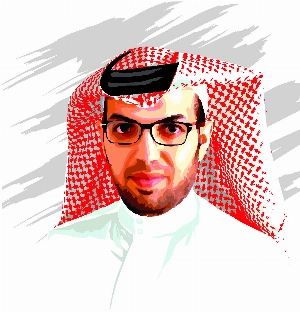Public protests have continued to take place in various cities throughout Iran since January. The main focus has been on the failure of President Hassan Rouhani’s government to revive Iran’s struggling economy, address high unemployment and inflation and combat alleged corruption.
However, these soon turned into radical political protests calling for the overthrow of the regime that is spending huge amounts of money on conflicts elsewhere in the Middle East while people are suffering at home. The aim of this high expenditure appears to be the destabilization of the region in order to extend the influence of the Iranian regime.
Furthermore, the United States withdrew earlier in May from the nuclear deal and imposed new economic sanctions on Iranian entities, which involves the exit of European companies from Iran, thereby making the situation even worse and posing a further serious threat to the regime.
I believe that the political and economic aspects of the crisis in Iran are closely linked. The Iranian regime’s policy of brinkmanship can be seen in its nuclear policy, which has cost the government over $200 billion over the past decade, together with the revolutionary interventions in other countries, which also cost the government billions of dollars in its effort to consolidate its domestic legitimacy, promote internal cohesion and stability and increase influence at the domestic level. Such lies have now been exposed and no longer work to manipulate the minds of Iranian citizens, who are raising their voice and boldly demanding the regime to end its interventions in other countries and the squandering of billions of dollars in wars that only make more enemies and put the country in a state of siege and economic sanctions.
In spite of the massive squandering of billions of dollars on the nuclear program and interventions in the region, over 40 million Iranian citizens live below the poverty line, i.e. half of the 80 million population, according to the head of Iran’s state relief committee, Parviz Fattah. The unemployment rate in Iran has reached 12 percent, while in some cities, including the Kurdish province of Kermanshah and the Baloch province of Ahwaz, it has reached up to 60 percent as stated by the Iranian Interior Minister, Abdul Reza Rahmani Fadhli.
On top of all this, rampant government corruption is wearing out all parts of the state owing to the dominance of the ruling minority on state resources. According to 2017 statistics of the Borgen Project, an NGO that fights global poverty, only five percent of the Iranian population have control over most of the country’s resources while the remaining 95 percent of the population live in poverty. That five percent includes the Supreme Leader, his entourage, senior officials and their families. The wealth of the Supreme Leader alone is estimated at $95 billion.
Finally, a country that exports over 4.5 million barrels of oil a day should be ashamed of letting its people live in such misery, poverty and marginalization. This image of tragedy is a normal outcome for a corrupt theocratic regime that has only led the country to endless wars, set the region on fire and caused endless chaos. Iran’s meddling can be detected behind the misery of every country in the Middle East which is currently in crisis. This can be seen throughout the region, be it in Iraq, in Lebanon, in Syria or in Yemen.
Iran is seen by the whole world as the biggest supporter and financer of terrorism. Surely its people deserve to live a decent life, to look for normal relations with the world, to gain the respect of the international community and to enjoy real development at all economic, political and cultural levels.
The solution is very simple. Iran only needs to change its policy in the region. It has to stop interference in the internal affairs of other countries, adhere to the principles of good neighborliness and international laws and conventions, not harbor terrorist groups on its territories, not incite sectarian strife, and not support terrorist militias in the region, and do so in a manner that promotes the security and stability of the region.
Dr. Ibrahim Al-Othaimin is a Middle East affairs specialist and security analyst based in Riyadh. He can be contacted at
Ibrahim.othaimin@gmail.com. Follow him on Twitter
@Alothaimin
